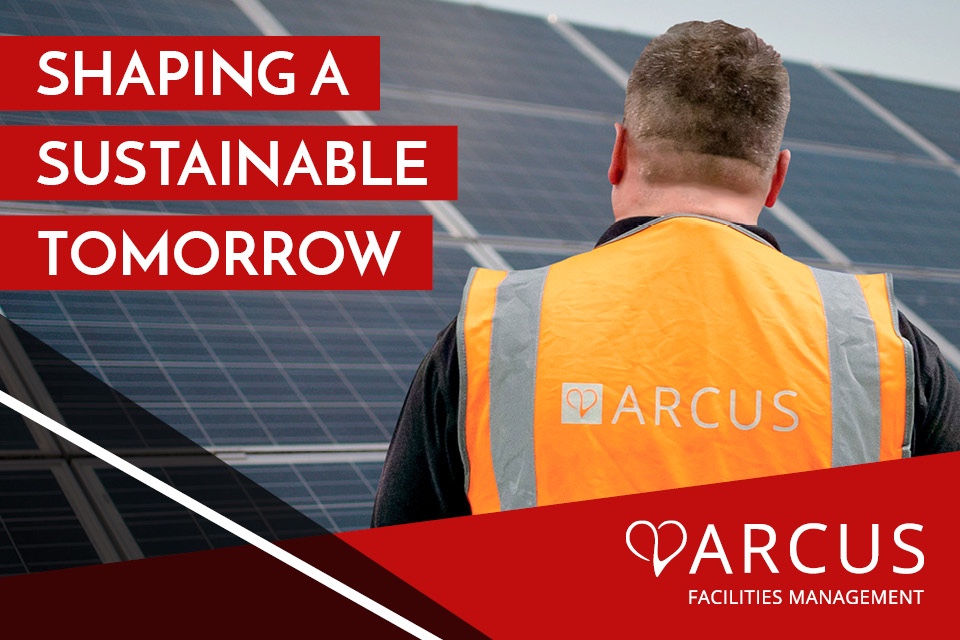Scott MacIndeor is Head of Advanced Services at Water Plus, the UK’s largest water retailer which has won seven awards, since September 2022, for its work with organisations.
The company is also shortlisted for two UK Customer Satisfaction Awards in 2023 and is a Finalist in the Sustainable Business category in the Business Champion Awards 2023.
FM Briefing chatted to Scott MacIndeor (pictured), who leads the Water Plus team providing Value Added Services including leak detection and repair, additional water tracking capability and other technical water efficiency measures and support…
- What’s the best thing about your role?
Every week is varied and different – and I find it great to work on new ideas and review what approaches will work best for a site, or organisation, around the water they use. The water industry continues to evolve, particularly for a water retailer like us, and it’s exciting all the things we’re working on currently for customers and for our business, for this year and the future. People may think water is a low priority and not interesting – though it’s an area where there are so many possibilities on what we can all do with it and an incredible resource.
- How can saving water save energy and help a business?
Using less hot water means lower energy costs. Low-cost push taps and aerators can cut flow rates by 16 litres a minute, so you’re using less water. This can reduce showers to 6 litres a minute – making a big difference for workplaces, gyms, spas and leisure facilities. Heating less water helps the environment too, as less energy is needed overall – and less water needs to be transported to sites through the network.
For me, at home, it’s more about small steps each day – so I turn off the tap while brushing my teeth, for example, as I don’t need that water and it’d just go down the plughole.
- Why is it important to note down meter readings regularly, during a year?
It’s worth noting your water use to help your budget – and spot potential leaks from damaged pipes on your site, which can affect your supply. You’re billed for every 1,000 litres of water used, measured by water meters, so saving water and tackling drips and leaks promptly is important.
On water meters, the important digits are the black ones. It’s worth noting your meter serial number – along with taking a photo of the reading, just in case your water retailer asks for this.
Remember to only read your meter if it’s safe to access – though if accessing the meter is not easy, then data loggers that can feed information into an online area, can really help. In fact, data loggers have helped identify a number of opportunities – along with issues – early, helping facility managers and site teams to react quickly to prevent damage to sites and further additional water costs.
Providing meter reads to your water retailer reduces bills based on estimates too and organisations have told us it has helped them budget, as well as delivering wider benefits like saving them water and saving energy too.*
- What other services can Water Plus offer businesses?
We’ve got access to the tech – and years of experience and knowledge – to help organisations use water more effectively, reducing waste and running costs. Plus, we already help organisations towards green sustainability goals, including Net Zero – and help lower energy costs when less hot water is used.
Services we can provide range from water efficiency site reviews to bespoke and unique projects that can help overall efficiency. Basically, our Advanced Services team is happy to talk about how we can help organisations – whether they’re a single site manufacturer, or a multi-site across the UK.
- What actions are Water Plus taking to help reduce impacts on the environment?
We’re engaging with our employees – and organisations we work with – to help reduce impacts we can all have on the environment. We have a Cleaner Climate Promise, which involves additional action including an ongoing tree-planting site appeal in 2023 to boost green canopy in the UK – and we’ve supported renewable energy projects that prevent carbon emissions as well as supporting wildlife and biodiversity work in communities in the UK.
If you have a suggestion for a tree planting site in England or Scotland, then email hello@water-plus.co.uk with the email subject heading “Nominate For Trees” and include some brief details on how trees would help the area suggested. Water Plus will review all suggestions.
More on what we’re doing to help the environment, can be found at: www.water-plus.co.uk/about-us/corporate-social-responsibility-sustainability/
- How is Water Plus helping the UK towards Net Zero?
Amongst the additional action we’ve taken on reducing carbon emissions in 2022 and 2023, we’re big on water efficiency and finding ways to help organisations gain more benefits from looking closer at their water use. This has included, more recently, work with BAE Systems – with details here on how it’s helping their aims and an NHS Trust, which can be seen here.
To request data loggers, or additional water efficiency services, contact the Water Plus team at: hello@water-plus.co.uk.
More information – and examples – of how Water Plus is helping organisations, is available at: www.water-plus.co.uk/about-us .
* Survey in February 2022 of customers contacted to encourage more water meter readings to track their use closer and submit more reads to Water Plus during a year. More than 43% of respondents to the survey had seen a benefit of reading their water meter more often out of 65 who completed the survey. Of those who saw a benefit, 41% said they had saved water (with the example on the question of saving water helping to spot a leak or a dripping tap), and 20% had saved energy (with the example on the question of using less hot water).









